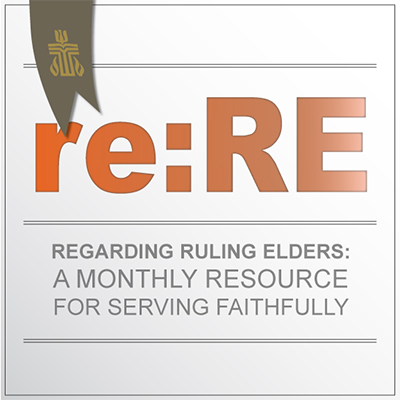While scrolling through Facebook, I saw someone share this quote attributed to Rev. Dr. William J. Barber: “Preachers don’t get to stay out of politics. We are either chaplains of empire or prophets of God.” This statement could be seen as controversial and sparked many comments about the separation of church and state, electoral parties, and specific candidates. Understanding the Rev. Dr. Barber’s ministry with the Poor People’s Campaign, I interpreted this as a call for preachers to engage with the affairs of the "polis."
"Polis," a Greek word meaning “city,” also represented a community with its own identity, culture, and social structures. This concept was crucial in the development of democracy in Athens and continues to influence us today in words like “politics,” “policy,” “political,” “politician,” and “polity.”
When we are called to work for peace, justice, freedom, and human fulfillment in the world, we are committing to the Triune God and the church to stay engaged with the polis: to care about the community intentionally. We must consider how government policies and decisions affect everyone in our communities, from those in the suburbs to those struggling to find employment. All these calls to “work for…” are interrelated. The phrase “No justice, no peace!” heard shouted during protests exemplifies this connection. You could also say: No justice, no peace! No peace, no freedom! No freedom, no human fulfillment! These concepts are deeply interconnected.
God sends the church to work for justice and peace in the world. The Book of Order in its Directory for Worship states:
“God sends the Church to work for justice in the world: exercising its power for the common good; dealing honestly in personal and public spheres; seeking dignity and freedom for all people; welcoming strangers in the land; promoting justice and fairness in the law; overcoming disparities between rich and poor; bearing witness against systems of violence and oppression; and redressing wrongs against individuals, groups, and peoples. God also sends the Church to seek peace: in the Church universal, within denominations, and at the congregational level; in the world, where nations and religious or ethnic groups make war against one another; and in local communities, schools, workplaces, neighborhoods, and homes.” (W-5.0304)
Freedom, here, is the balance between individual conscience, community judgment, and adherence to faith. In exercising freedom, we witness God’s love, support the church’s ministry, and contribute to the well-being of the community and society. We are free because God has set us free. We are free to serve God and others.
Human fulfillment is found in living in covenant fellowship with God and participating in God’s work in the world. We find fulfillment in enjoying, glorifying, trusting, and obeying God. We also find joy in proclaiming the gospel, offering grace to others, and inviting people to discipleship, which gives us purpose and identity. We contribute to the well-being of ourselves, others, and the world. In that fulfillment, there is no need for the individuality that the world promotes. We are polis, and we should care that peace, justice, freedom, and human fulfillment are available to all.
What can you do as a ruling elder to help members work for peace, justice, freedom, and human fulfillment in the world?
- Help guide the congregation in understanding and acting upon its responsibilities to promote peace and justice in the community and beyond.
- Organize and lead initiatives within the congregation to address the needs in your community and mobilize members to participate in acts of compassion.
- Encourage and facilitate the congregation’s involvement in advocacy efforts and partnerships with other organizations in your community that are committed to justice.
- Provide experiences and times for studying Scripture and church teachings on justice and peace, as well as offering workshops, seminars, and other learning opportunities.
- Serve people with energy, intelligence, imagination, and love, setting an example for the members of the congregation to follow in their daily lives and interactions.
- Ensure that worship services include elements that inspire and call the congregation to action working for peace, justice, freedom, and human fulfillment in the polis, the world.
For Reflection:
- How does the Rev. Dr. William J. Barber’s statement, “Preachers don’t get to stay out of politics. We are either chaplains of empire or prophets of God,” challenge or affirm your understanding of the role of church leaders in social and policy issues?
- In what ways can we, as members of a community (polis), actively contribute to promoting peace, justice, freedom, and human fulfillment in our local context? How does this align with our faith and commitment to God and the church?
- Reflect on the interconnectedness of justice, peace, freedom, and human fulfillment as described above. How can recognizing these connections influence your personal actions and the collective efforts of your faith community in addressing social issues?
Marissa Galván-Valle is a minister of Word and Sacrament in the Presbyterian Church (U.S.A.). She is the senior editor for Spanish Language Resources in the Presbyterian Publishing Corporation and temporary pastor at Beechmont Presbyterian Church, an intercultural church that worships each Sunday in Spanish and English. She was ordained as a ruling elder when she was 21 years old.
Throughout 2023 and 2024, monthly “Regarding Ruling Elders” articles will alternate between a deep dive into the ways ruling elders discern and measure the life of a congregation through the ministry of members and stories about how ruling elders are using their call and gifts as they move within and beyond the walls of the congregation.
Subscribe to receive notifications of monthly Regarding Ruling Elders articles. Visit the PC(USA) Leader Formation website for more resources for ruling elders and deacons. For more information, email Martha Miller, editor of “Regarding Ruling Elders.”

